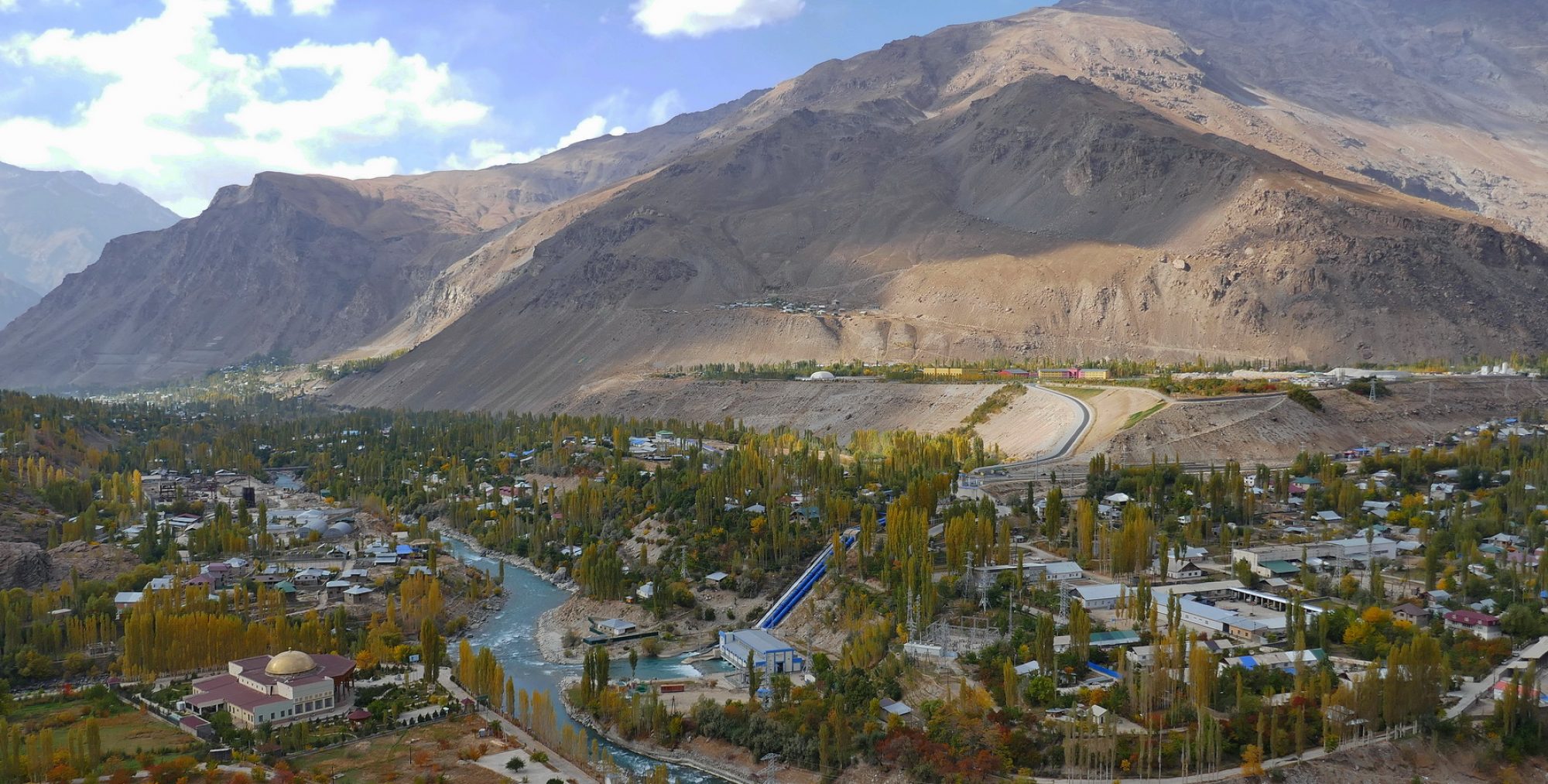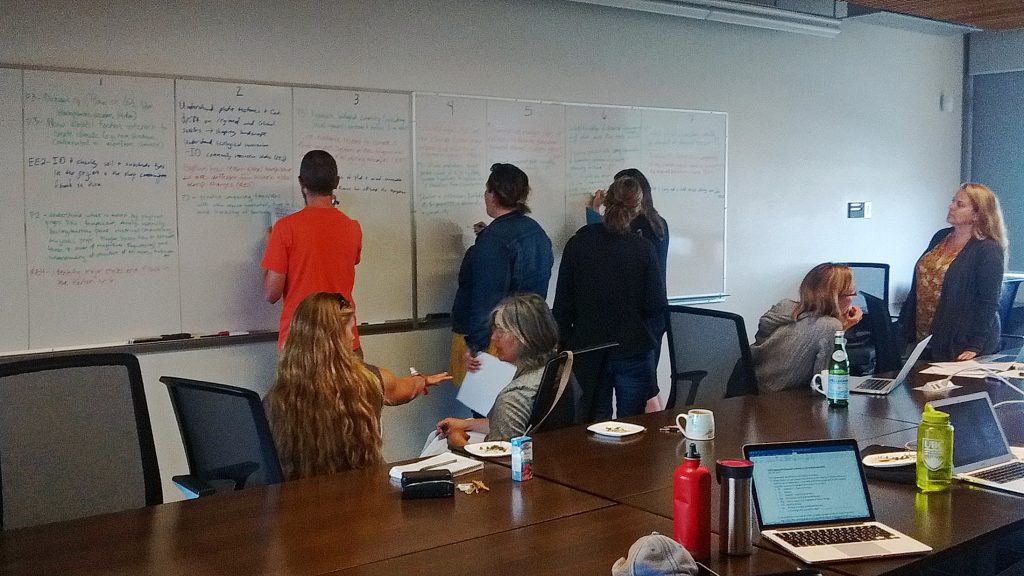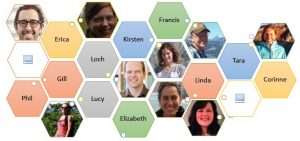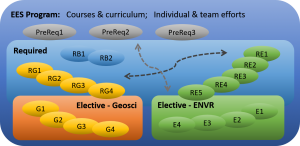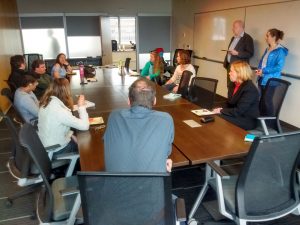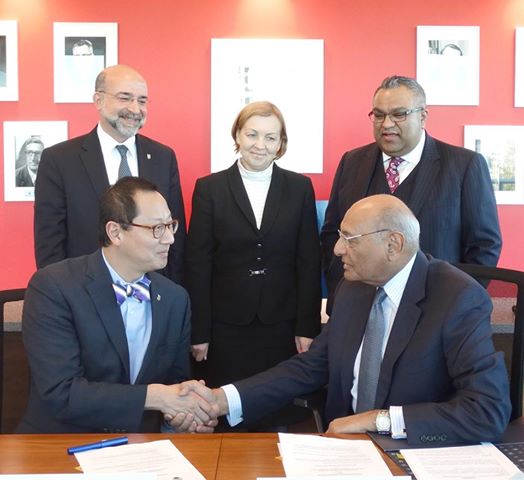August 29th 2017, a lunch time meeting with 9 EEGS faculty (two sending regrets) served to introduce UBC-O faculty and the UCA/UBC curriculum project coordinator to each other. Many thanks to Raina Reddecliff and Craig Nichol for their kind and efficient help in setting up and running the meeting.

In a nutshell, our goal is to generate 22 courses for the University of Central Asia’s new Earth and Environmental Sciences EES degree. The first students at UCA have already begun their 5-year program, and they will be taking our EES courses starting in September 2019 (or 2018 for 3 basic science prerequisites).
The slides used to introduce the project and explain details are available here as a PDF: UBCO-UCAproject-slides. Further details can be seen on pages at our project blog https://blogs.ubc.ca/eescourses/
We hope faculty will be able to engage as consulting subject experts, and to share teaching and learning resources or strategies with our team of 11 course authors (who are themselves experts in their own geoscience or environmental science subject areas).
Course authors (or science education specialists – SESs) will be doing all the work, and faculty subject experts need only meet or exchange communications occasionally (perhaps an hour per week or less on average) over the 2-year duration of this project. And yes, there are some monetary incentives – please ask for details.
Next steps:
- Details about how faculty can engage with, and benefit from, this project are loosely outlined at https://blogs.ubc.ca/eescourses/files/2017/07/Faculty-expectations.pdf.
- Project personnel may contact you with a request for an initial conversation sometime in the Fall of 2017. Of course there are no obligations, but we believe this may be an awesome opportunity to connect with researchers working in Central Asia, and to make a significant contribution to education in the Earth and environmental sciences, both at UCA, and here in BC, for our own students.
- If you have graduate students and/or post-docs or RAs with an interest, by all means please put them in touch with Francis Jones, <fjones@eoas.ubc.ca>
- AND, if you have questions or ideas, again, please contact Francis by email.
Thank you everyone for your interest and the friendly welcome. Hopefully we can move forward with further interactions between UBC-V and UBC-O faculty who have common interests in Earth, Environmental and Geographical Sciences.
By the way, if you have concerns about intellectual property (or any other formalities), please ask for details – we have a contract covering all such concerns that was carefully crafted by UBC’s legal council and signed by President Ono and UCA’s chairman of the board of trustees, Dr. Kassim-Lakha on Jan. 10, 2017.
